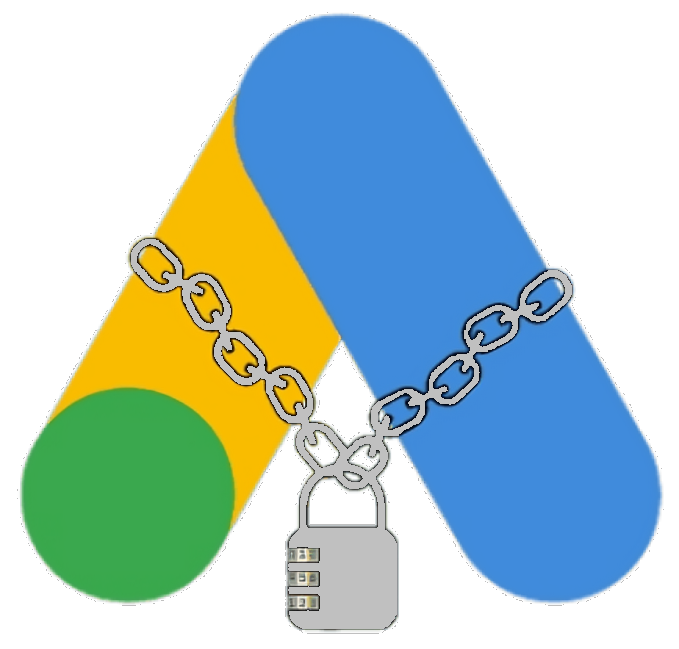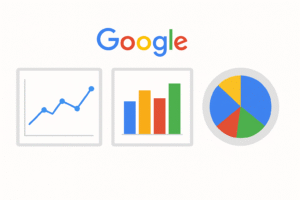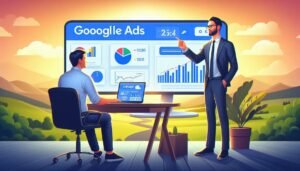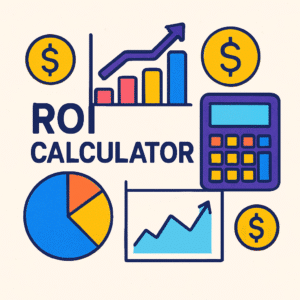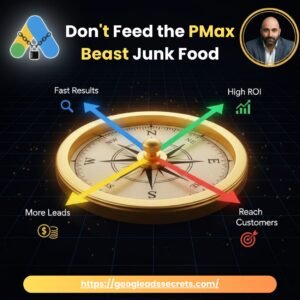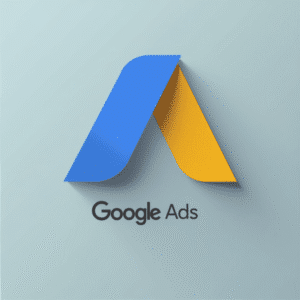Mastering Google Ads Pay Per Click: A Guide to Profitable Campaigns
In the fast-paced world of digital marketing, generating immediate traffic and qualified leads is the ultimate goal. While SEO builds a strong foundation for long-term growth, a well-executed Google Ads pay per click campaign is your rocket fuel. It places your business directly in front of customers at the exact moment they are searching for your products or services. But mastering this powerful platform requires more than just a budget; it demands strategy, precision, and continuous optimization. This guide will walk you through everything you need to know to transform your PPC efforts from a costly experiment into a profitable revenue engine.
What Exactly is Google Ads Pay Per Click Advertising?
At its core, Google Ads pay per click (PPC) is a model of internet marketing in which advertisers pay a fee each time one of their ads is clicked. Essentially, it’s a way of buying visits to your site, rather than attempting to “earn” those visits organically through search engine optimization (SEO). Search engine advertising is one of the most popular forms of PPC. When someone searches on Google for a keyword related to your business, your ad can appear at the top of the search engine results page (SERP). This immediate visibility is what makes PPC so compelling. For a broader look at digital marketing principles, resources like HubSpot’s blog provide excellent context.
Every time your ad is clicked, you pay a fee known as the cost-per-click (CPC). When your PPC campaign is well-designed and running smoothly, that fee becomes trivial. The visit from a potential customer is worth more than what you pay for it, leading to a strong return on investment (ROI). The entire system operates like an auction, where advertisers bid on keywords to secure top ad spots.
Why Your Business Needs a Google Ads Pay Per Click Strategy
In today’s competitive market, relying on a single traffic source is risky. A robust Google Ads pay per click strategy offers several key advantages that can significantly accelerate your business growth. Firstly, it delivers fast results. Unlike SEO, which can take months to show significant traction, a PPC campaign can start generating traffic and leads within hours of launch. This speed is invaluable for new businesses, product launches, or promotional events.
Secondly, the targeting capabilities are unparalleled. You can target users based on specific keywords they search, their geographic location, demographics, and even their past browsing behavior (remarketing). This precision ensures your ad spend is directed toward the most relevant audience, increasing the likelihood of conversion. While SEO is crucial for organic authority, a smart advertiser understands how PPC and SEO can work together to dominate the search results.
Setting Up Your First Google Ads Pay Per Click Campaign
Getting started with Google Ads pay per click can feel daunting, but breaking it down into manageable steps makes the process clear. A proper campaign setup is the foundation of your success. The first step is defining clear, measurable goals. Are you looking for more leads, direct online sales, or simply website traffic? Your goal will influence every other decision you make.
Next comes keyword research. This is arguably the most critical step. You need to get inside the head of your customer and determine what terms they are searching for. Tools like the Moz Keyword Explorer can help you find relevant keywords and gauge their search volume and competition. Once you have your keywords, you organize them into tightly-themed Ad Groups. Each Ad Group should contain a small cluster of similar keywords, which allows you to write highly relevant ad copy. Compelling ad copy that speaks directly to the searcher’s needs is what earns the click.
The Power of Keyword Intent in Your PPC Campaign
Not all keywords are created equal. A common mistake is focusing solely on search volume. True success in Google Ads pay per click comes from understanding user intent. For instance, someone searching for “emergency plumber” has a much higher purchase intent than someone searching for “how to fix a leaky faucet.” Prioritizing high-intent keywords often yields a better ROI. An expert tip is to understand the power of nouns over verbs in your keywords. Nouns often signal a user who is closer to making a purchase decision.
Understanding Key Metrics in Your Google Ads PPC Account
To optimize your Google Ads pay per click campaigns, you must track the right metrics. It’s easy to get lost in a sea of data, but a few key performance indicators (KPIs) will tell you most of what you need to know. For a deeper dive, explore the good and bad news about Google Ads metrics.
Return on Investment (ROI) is the most critical metric. It tells you how much profit you’re making for every dollar you spend on ads. A positive ROI means your campaigns are profitable. Calculating and tracking ROI is fundamental to justifying your ad spend and scaling your efforts effectively.
Quality Score is another vital metric. Google rates the quality and relevance of your keywords, ad copy, and landing pages on a scale of 1-10. A higher Quality Score can lead to lower ad prices and better ad positions. Therefore, you must prioritize Quality Score optimization. Other important metrics include Click-Through Rate (CTR), Conversion Rate, and Cost Per Acquisition (CPA).
Advanced Strategies for Your Google Ads Pay Per Click Efforts
Once you’ve mastered the basics, it’s time to implement advanced strategies to gain a competitive edge. This is where you can truly maximize the performance of your Google Ads pay per click account. One key area is bidding. While automated bidding can be effective, understanding manual bidding gives you more control. Recent changes like the “Consist Mode” update highlight the ongoing tug-of-war between automation and manual control.
Landing page optimization is also crucial. The user experience after the click is just as important as the ad itself. For local businesses, deciding between sending traffic to a Google Business Profile or a dedicated landing page is a key strategic choice. Furthermore, you can save a significant amount of your budget by effectively managing negative keywords and close variants. In fact, you can even find an automated script to handle close variants, preventing wasted ad spend on irrelevant searches.
Avoiding Common Google Ads PPC Mistakes
Many businesses waste money on Google Ads pay per click due to simple, avoidable mistakes. One of the most common is not having conversion tracking set up correctly. Without it, you’re flying blind, unable to tell which keywords and ads are driving actual business results. Another frequent issue is sending all traffic to your website’s homepage. A dedicated landing page tailored to the ad’s message will almost always convert better.
It’s also essential to monitor your campaigns for warning signs. For example, if you are getting high impressions but zero clicks, it’s a clear indicator that your ad copy or targeting is not resonating with the audience. Staying informed through industry resources like Neil Patel’s blog and Search Engine Journal can help you stay ahead of these common pitfalls.
When to Hire a Google Ads Pay Per Click Specialist
While it’s possible to manage campaigns yourself, the learning curve can be steep and costly. The difference between expert and novice advice can be thousands of dollars in wasted ad spend. A Google Ads pay per click specialist can bring years of experience to optimize your campaigns for maximum profitability from day one.
Consider getting a professional audit of your ad account to identify areas for improvement. If you’re unsure where to start, a general consultation can provide a clear roadmap. Experts like Hisham Ezzat, whom you can connect with on LinkedIn or via WhatsApp, can offer the guidance needed to navigate the complexities of the platform. For those looking to dive deeper, you can also explore the comprehensive Google Ads Secrets cornerstone resource.
Resources for Learning More
For those committed to learning, there are many excellent resources available. Online learning platforms like Coursera, Udemy, and the Arabic-language platform Edraak offer courses for all skill levels. Community forums on Reddit and Quora can provide answers to specific questions. For local businesses in the Middle East, leveraging directories like Yellow Pages UAE and the Arab Directory can also supplement your digital marketing efforts.
Conclusion: Your Path to PPC Success
Ultimately, success with Google Ads pay per click is not about outspending your competition; it’s about outsmarting them. It requires a strategic approach that combines careful keyword selection, compelling ad copy, a seamless landing page experience, and meticulous tracking. By focusing on user intent, optimizing for Quality Score, and continuously analyzing your data, you can build a powerful advertising engine that drives consistent, profitable growth for your business. Don’t be afraid to test, learn, and adapt. And when in doubt, leverage the wealth of information and expert resources, like the Google Ads Secrets blog and its invaluable PPC tips, to guide your strategy.
Frequently Asked Questions (FAQ) about Google Ads Pay Per Click
- Is Google Ads PPC better than SEO?
- Neither is inherently “better”; they serve different purposes and work best together. PPC offers immediate results and precise targeting, while SEO builds long-term, organic authority and trust. A balanced strategy leverages both for maximum visibility.
- How much should I budget for a Google Ads pay per click campaign?
- There’s no magic number. A good starting point is what you can afford to test with for 1-3 months. Your budget depends on your industry, the competitiveness of your keywords, and your business goals. Start small, prove ROI, and then scale up.
- How long does it take to see results from PPC?
- You can start seeing traffic and clicks almost immediately after your campaign goes live. However, it typically takes a few weeks to a month to gather enough data to properly optimize your campaigns for conversions and profitability.
- What is a good Quality Score?
- A Quality Score of 7 or above is generally considered good. A high score indicates that your ad, keywords, and landing page are highly relevant to the user, which Google rewards with lower costs and better ad placement.
- Can I run Google Ads myself, or should I hire someone?
- You can certainly run ads yourself, especially with a small budget. However, the platform is complex. Hiring an experienced professional can often save you money in the long run by avoiding costly mistakes and accelerating your path to profitability.

